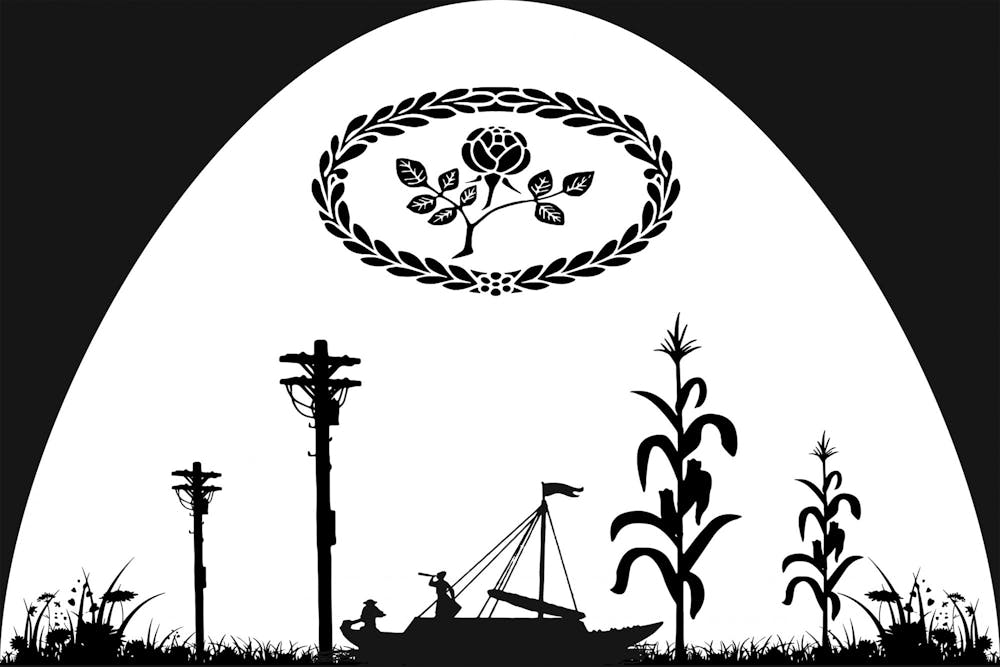IU Theatre will livestream a virtual stage reading of “More Perfect Places” on a Zoom webinar April 9-10. Tickets are free and can be reserved on the Department of Theatre, Drama and Contemporary Dance website.
Writer and director Seth Bockley and co-creator Tanya Palmer will also present the process of the project during IU’s Platform: An Arts and Humanities Research Laboratory’s “Style of the State Symposium” at 10:40 a.m. April 10.
“More Perfect Places'' takes the utopian history of New Harmony, a southern Indiana town, and creates an informative 21st-century production,” Bockley said. He said the production will do this by combining installation art, theater, documentary forms, video and audio.
“It’s trying to both inform people about what happened there, the famous utopian history of this place and also to celebrate the utopian ideas of contemporary young people,” Bockley said. “Especially the ones who live in the state and who have their own visions of what a perfect world would be.”
New Harmony is well known for being home to two different utopian communities over time, Palmer said. The first was a religious millennial community in 1814 and the second was a community of progressive scientists, libertarians and artists in 1825.
This stage reading is one component of a larger theater project by Bockley and co-creators Palmer, Liz Nofziger and Angela Tillges.
Bockley said Palmer first approached him in 2019 about doing a project relating to New Harmony. Palmer said they got support from Platform: An Arts and Humanities Research Laboratory for their 2020 theme of Style of the State. Then in summer 2020, they visited New Harmony and started researching and writing, Bockley said.
“I was inspired by the idea what you could do to create a kind of site specific performance in that space,” Palmer said.
Eventually, “More Perfect Places” will be a full scale production. Bockley said the current plan is to get the whole team down to New Harmony this summer to do additional research and another stage reading with the New Harmony Project, an arts organization that supports and celebrates writers and their work.
Bockley said he hopes “More Perfect Places” will premiere as a full production in New Harmony during the summer of 2022.
“The goal is to write a piece that is designed and written to be performed and presented in that place,” Bockley said.
IU graduate student Tess Bladow is the stage manager for the stage reading. She said some of her responsibilities as a stage manager involve taking notes of line changes and sending out rehearsal reminders. However, with a virtual reading she also has to manage Zoom rehearsals and the final Zoom webinar.
“In some cases I will be in charge of the transitions of actors because I have the capabilities to mute people and turn off their cameras,” Bladow said. “I can share a screen if there are visuals that are needed or I can share audio if that’s needed.”
IU theater organized a fall stage reading of “More Perfect Places” in November. Bockley said the November and April readings are different and serve to try out new material and get audience reactions.
Bockley said due to positive audience response to monologues in the November show, he will add more to test out in the April reading. Monologues were delivered by historical figures, ordinary townspeople and even inanimate objects like a tornado.
In addition to scenes that tell the play’s story, there will also be monologues that tell New Harmony’s history, Bockley said.
“I’m going to expand on that and have more of those monologues, almost like this is a piece of music.” Bockley said.
When moving forward, audience response is important for these stage readings, Palmer said.
“Ultimately, theater is for an audience, it's not just for the artists who are making it,” Palmer said. “Not that we're going to do everything an audience suggests, but then we know how other people are receiving the information and that can help us make it clearer and make it more the thing we want it to be.”




